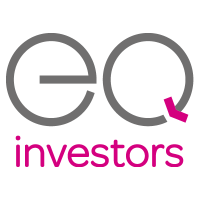

Environment
EQ Investors Comment on New Morningstar System
Damien Lardoux, Portfolio Manager at EQ Investors, has commented on the recent introduction of a new rating system at Morningstar, a leading fund ratings company. In his blog post for EQ Investors, he discusses whether the Environment, Social and Governance (ESG) rating system could be misleading to ethically-minded investors. Read the blog post below or find it on the EQ website.
Last month, Morningstar the pre-eminent fund ratings firm launched its global ESG (Environmental Social and Governance) Rating for a large proportion of the 200,000 funds it tracks. The rating helps investors evaluate funds based on the ESG profile of their underlying holdings and provides the ability to build these factors directly into an investment strategy.
At EQ, we have been managing the Positive Impact Portfolios for a number of years, for investors that care about how and where their money is invested. While it goes without saying that we welcome initiatives that raise the issue of responsible investing, a sole focus on ESG factors can be misleading. A crucial drawback is that ESG focuses only on the operations of a company, ignoring the impact of products and services.
Instead of this operational approach, we are firm believers that the focus should be on the products/services and their subsequent impact on the environment and/or society. Two funds we rate extremely highly are Impax Environmental Markets and WHEB Sustainability. They invest in companies which reduce water waste, improve energy efficiency and develop clean and sustainable transportation services.
Both of these funds have been awarded below average ESG ratings in the Equity Ecology sector. The Virgin Climate Change Fund has the highest score and invests in companies with lighter than average environmental footprints. The fund’s scope goes beyond just the environmental sector, but within the portfolio are companies like Anheuser-Busch, an alcohol producer; UBS Group, a Swiss bank fined for tax evasion; and Vivendi the media group.
Hardly investments that you would consider as making positive contributions to society or the environment.
With well documented environmental, social and governmental policies in place and dedicated teams to answer any queries, ESG ratings have tended to favour larger businesses over their smaller counterparts. A geographical bias is also present; European companies are more advanced in their sustainability reporting than US or emerging market based companies. It’s evident why the Virgin Climate Fund scores so highly – an 86% exposure to large companies and a 74% exposure to Europe. Whereas both the Impax and WHEB funds have less than 30% invested in large companies and 20% in Europe.
For investors looking to make sustainable, responsible and impact investments – it’s important that ESG ratings are one of the metrics considered, rather than the only focus.
Source: EQ Investors


 Environment12 months ago
Environment12 months agoAre Polymer Banknotes: an Eco-Friendly Trend or a Groundswell?

 Features11 months ago
Features11 months agoEco-Friendly Cryptocurrencies: Sustainable Investment Choices

 Features12 months ago
Features12 months agoEco-Friendly Crypto Traders Must Find the Right Exchange

 Energy11 months ago
Energy11 months agoThe Growing Role of Solar Panels in Ireland’s Energy Future




























